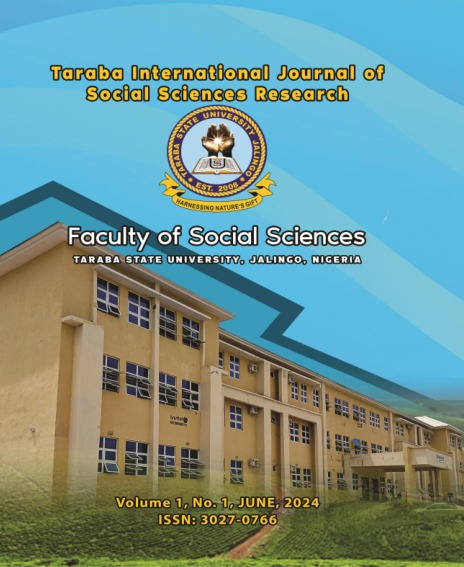Farmers-Herders Conflict and Human Security in Northeast, Nigeria
Keywords:
farmers/herders conflict, human security, internally displaced personsAbstract
This paper examined the farmers-herders conflict and analyzed its impact on human and food security in Northeast Nigeria. The primary objective of the paper is to explore the causes and consequences of the conflict on human and food security. Historically, farmers and herders in the region maintained a symbiotic relationship characterized by centuries of peaceful coexistence,
which has devolved into violent clashes over the past decade. The root causes of the conflict are tied to struggles over access to and control of land, water, and pasture. This resource-based and development-induced conflict has been aggravated by supply-induced scarcity, climate change, population growth, and the absence of proactive government policies. The study employed a qualitative approach and a phenomenological research design to gather primary data. Data collection methods included Focus Group Discussions (FGD), Key Informant Interviews (KII), and Direct Observations. The theoretical framework is Environmental Scarcity Theory (EST),
developed by Homer-Dixon. Findings indicate that the conflict is fundamentally resource-based, driven by policy failures of successive governments. Key conflict drivers identified include the open grazing system, child-herding, night grazing, the implementation of Anti-Open Grazing Laws, and climate change. The paper recommends several measures: the establishment of grazing reserves, resettlement of Internally Displaced Persons (IDPs) with appropriate compensation, the use of a nomadic migration calendar for seasonal movements, the initiation and implementation of multi-stakeholder dialogues, and the application of African alternative dispute resolution mechanisms to resolve the conflict.

